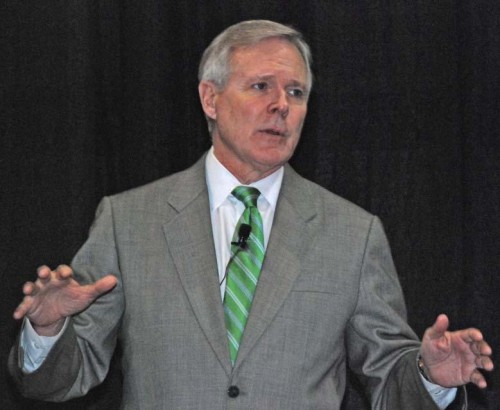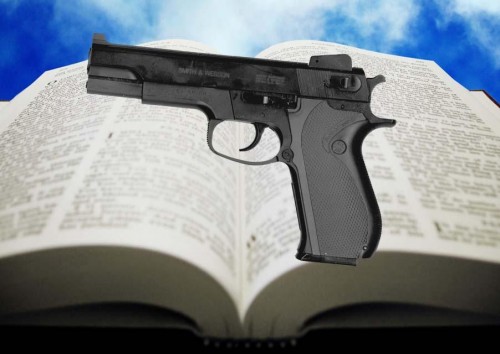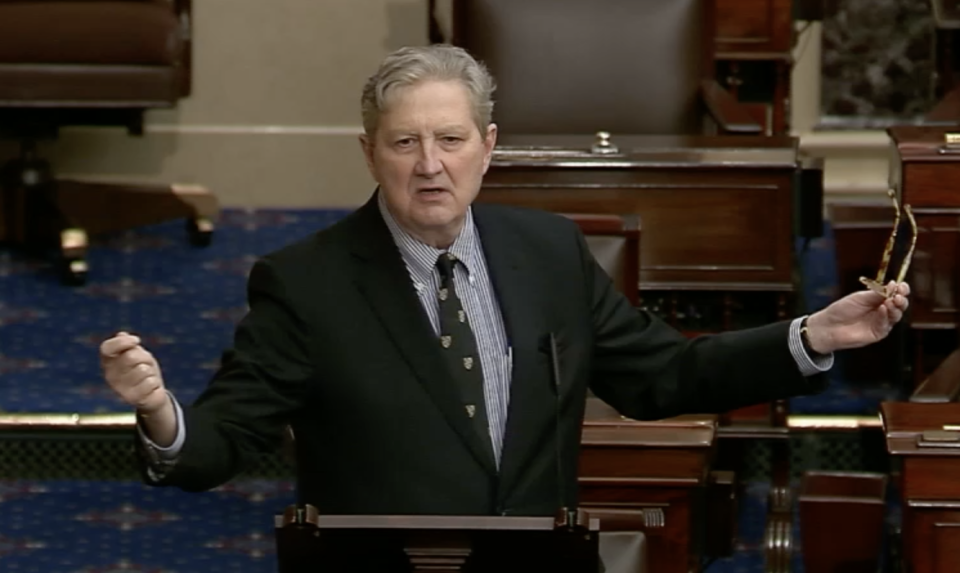
Protection vital for future, locals tell Mabus
August 17, 2010Back-to-school road safety tips for children and parents
August 19, 2010When God’s shield of armor isn’t enough, Louisiana Act 944 may be.
The new concealed-carry law, which went into effect Sunday, allows permitted citizens to pack heat at places of worship.
There are a few stipulations, however. Under the modified concealed-carry law, churches, synagogues or mosques choosing to allow concealed handguns must inform their congregations of the decision. Also, concealed-carry permit holders are required to take eight hours of training – beyond the initial training provided by Louisiana State Police.
What that extra training entails is up to the church to decide, according to state police Sgt. Clay Reavis, who oversees the permitting division.
“The way the law is written, it is incumbent upon each church to decide what they’ll accept as tactical training,” he said. “The final decision lies with the church.”
The modified law, the brainchild of Rep. Henry Burns (R-Haughton), does not apply to religious places situated on school property. And, he emphasized, churches have the option of refusing permit holders to bring their weapons to church.
Burns told a Senate judiciary committee in early June that the bill was needed because churches are not as safe as they once were and should be able to take steps to protect parishioners, the Associated Press reported.
“I was not a popular man when I first introduced this bill,” he told the Tri-Parish Times. “I was hit with a volley of negative editorials across the state. I was ‘the unclaimed’ for a long time.”
Reasoning that “we no longer live in Mayberry,” a fictional community depicted in the ’60s “Andy Griffith Show” where good always wins out over evil, Burns said his pitch to fellow lawmakers was simple. “The pitch I made was that the bill was a ministry of intervention,” he said. Act 944 actually gives churches an outlet to strengthen their safety plans, according to the Haughton representative.
He suggested that churches in rougher neighborhoods could benefit from a concealed-weapons security force.
It’s an argument that has local religious groups divided.
Bishop Sam Jacobs, of the Diocese of Houma-Thibodaux, issued a written statement Friday saying that no concealed weapons will be allowed in Catholic churches.
According to Jacobs, the Louisiana Conference of Catholic Bishops Board met in April, shortly after Haughton’s bill was unanimously approved by the state House of Representatives, to discuss the church’s position.
“Our churches are places of worship and sacred spaces,” Jacobs wrote in the release. “Yes, we respect the rights of someone to carry a concealed weapon if they have a permit. But at the same time, we have rights as well and we do not wish our rights to be violated to honor that person’s right.”
At Victory Christian Center, Assistant Pastor Bobby Autin said the notion of carrying a gun to church is a foreign one.
“It’s so weird that we’re even having this conversation,” he said. “It just shows what kind of world we are living in today. If anything churches are where you should feel the safest. A safer world … it’s something we pray for every day as a staff and a church.”
Autin said Victory Christian’s membership includes a number of law enforcement officers. He said permit holders would likely be allowed to carry weapons to church services but that church leaders “have to play it by ear.”
“It depends on how the person presents himself with [the weapon],” he explained. “We don’t foresee it being an issue.”
Similarly, First Baptist Church of Houma pastor Steve Folmar said church members with concealed-carry permits would be allowed to arm themselves if they so choose. But for bigger safety concerns, the church’s safety team is mainly comprised of off-duty officers – Houma police, sheriff’s deputies and state troopers – who are members of the congregation.
Folmar said officers attend each of the church’s three Sunday services. “Fortunately, I can say, in the 11 years I have been here, we have not had an issue of any kind,” he added.
“My thoughts [on the law] are probably not very popular,” the reverend admitted. “I don’t like the government regulating anything I do with my gun. I’m very old-school in that thought.”
As a permit holder, Folmar said he’s comfortable with the fact that to be granted a permit, citizens must first undergo an extensive Federal Bureau of Investigation background check and complete tactical training.
“By and large, anyone with a permit is a law-abiding citizen and would not be a person with a probability for endangering other people,” he said. “You’ve got to go through a good bit to get that permit.”
And although Folmar says carrying a gun to church is something he’d do – “I just think that’s not what a pastor needs to be doing” – he said knows other ministers who do.
“I’ve got pastor friends who literally preach on Sunday with a gun in their pocket. You’ve had so many guys gunned down in the last five years in the pulpits while preaching, a lot of guys have kind of gotten scared,” Folmar said. “You never know what nut is going to walk in off the street and go to shooting at you. … Those are the people you have to worry about, not the average citizen sitting in church with a gun.”
But opponents of Act 944 view the law differently. Ladd Everitt, director of communications for the Coalition to Stop Gun Violence, says the state’s weak gun regulations and use-of-force laws are cause for concern.
“The threat of concealed handgun permit holders, because of weak permitting procedures, is very real,” Everitt said. “There were six confirmed mass shootings by concealed gun permit holders last year and there have already been at least two this year. Those numbers are very concerning because, these days, we don’t even have access to information about who is holding those permits.”
Although Louisiana has the highest rate of gun deaths in the U.S. – at 19.87 per 100,000, it is nearly double the national rate of 10 per 100,000, according to data from the Centers for Disease Control and Prevention – Everitt said he’s seen no documentation suggesting that the state’s churches are at a greater threat. “I imagine it is far lower,” he said. “This seems to us to be bad policy.”
Likewise, the Legal Community Against Violence said no studies exist that supports the argument that the presence of weapons increase safety, according to Laura Cutilletta, a senior staff attorney.
“Studies show that the more guns are around, the more opportunities there are for injury and death,” she said. “If you bring guns into places of worship, they are increasing the danger to the families that are going there.”
Peter Hamm, the communications director for the Brady Campaign to Prevent Gun Violence, sides closest to First Baptist Church of Houma’s approach of using member police officers to boost security.
“But to just generally allow anyone to bring their gun to church? We think that is a bad idea,” Hamm said of the Coalition to Stop Gun Violence’s stance.
Louisiana became the first state to allow concealed-carry permit holders to have a concealed handgun inside a place of worship. A controversial law authored by Rep. Henry Burns (R-Haughton) went into effect Sunday. LIZ DAIGLE












